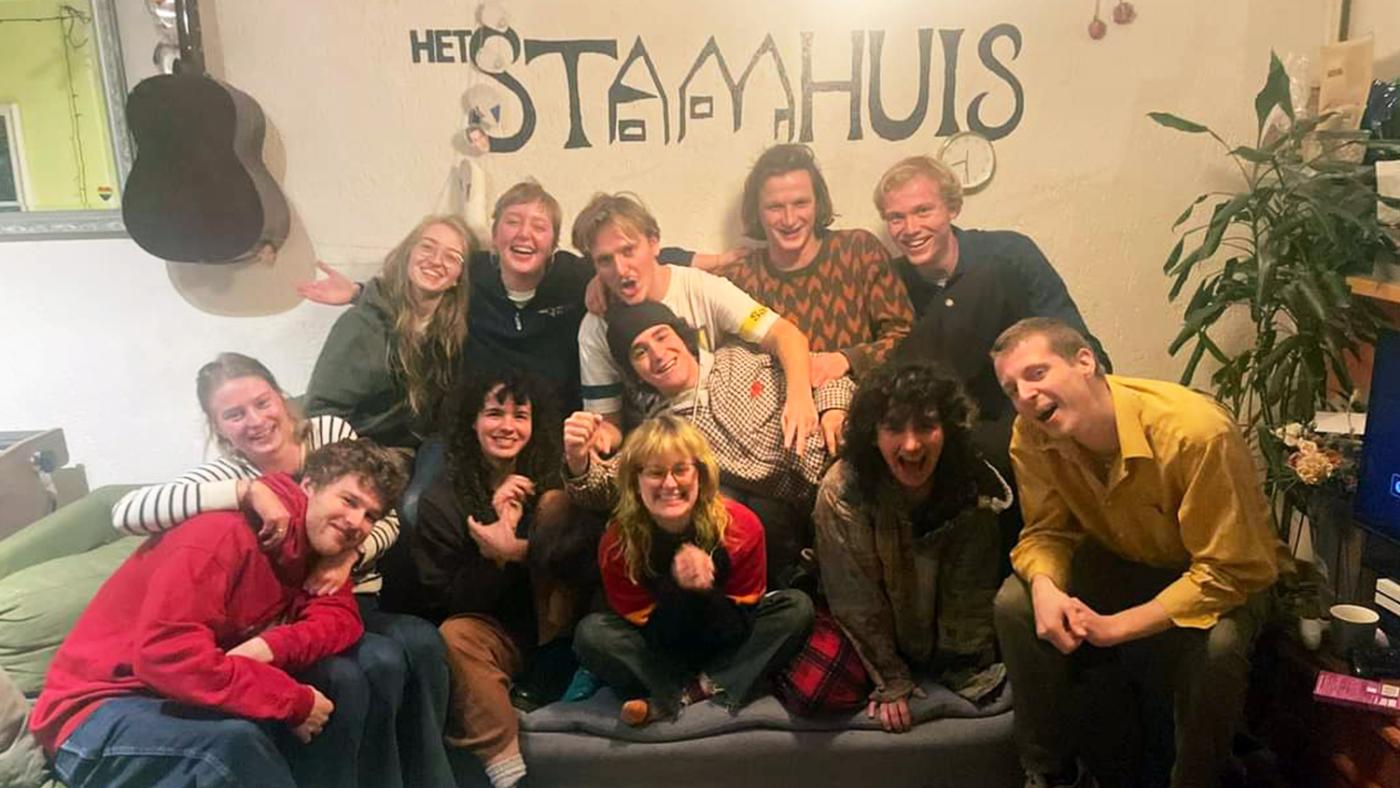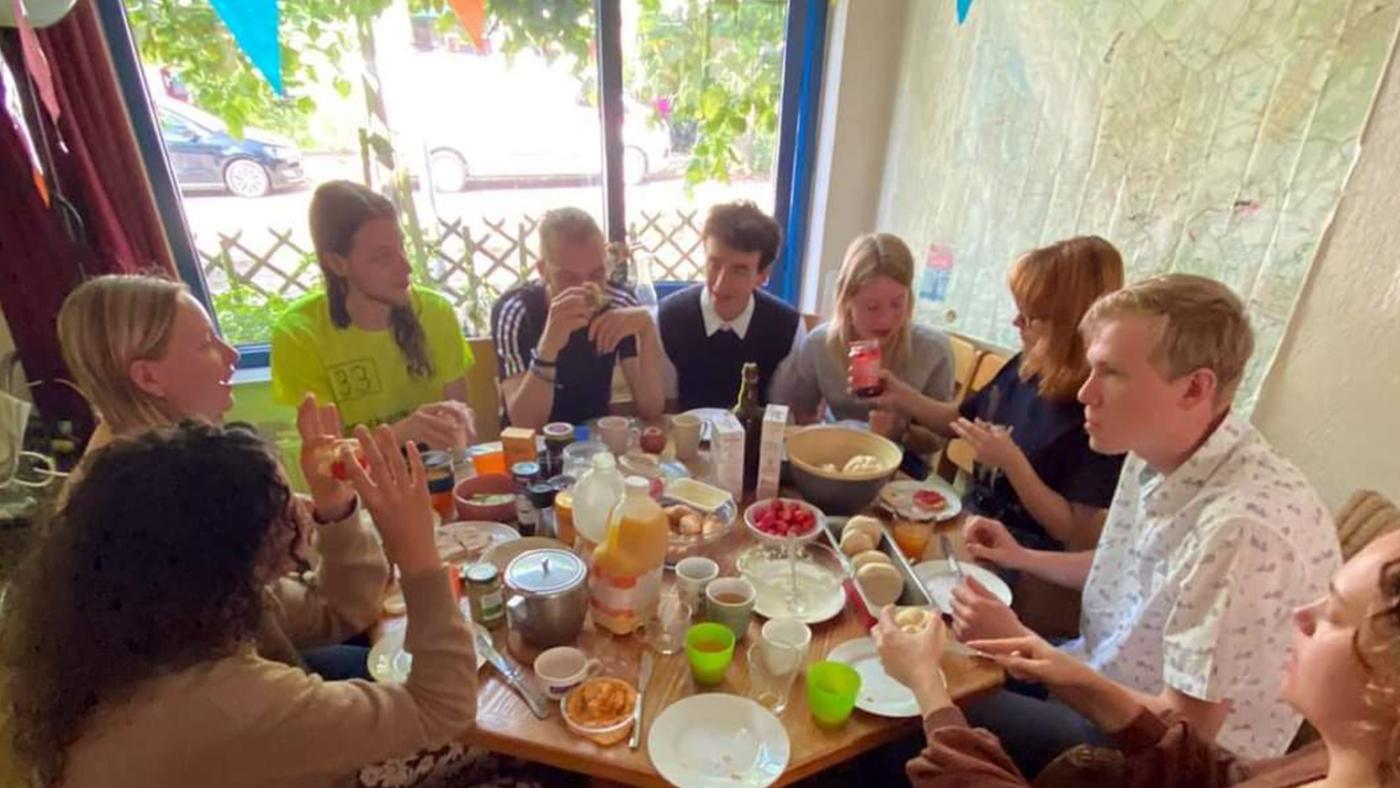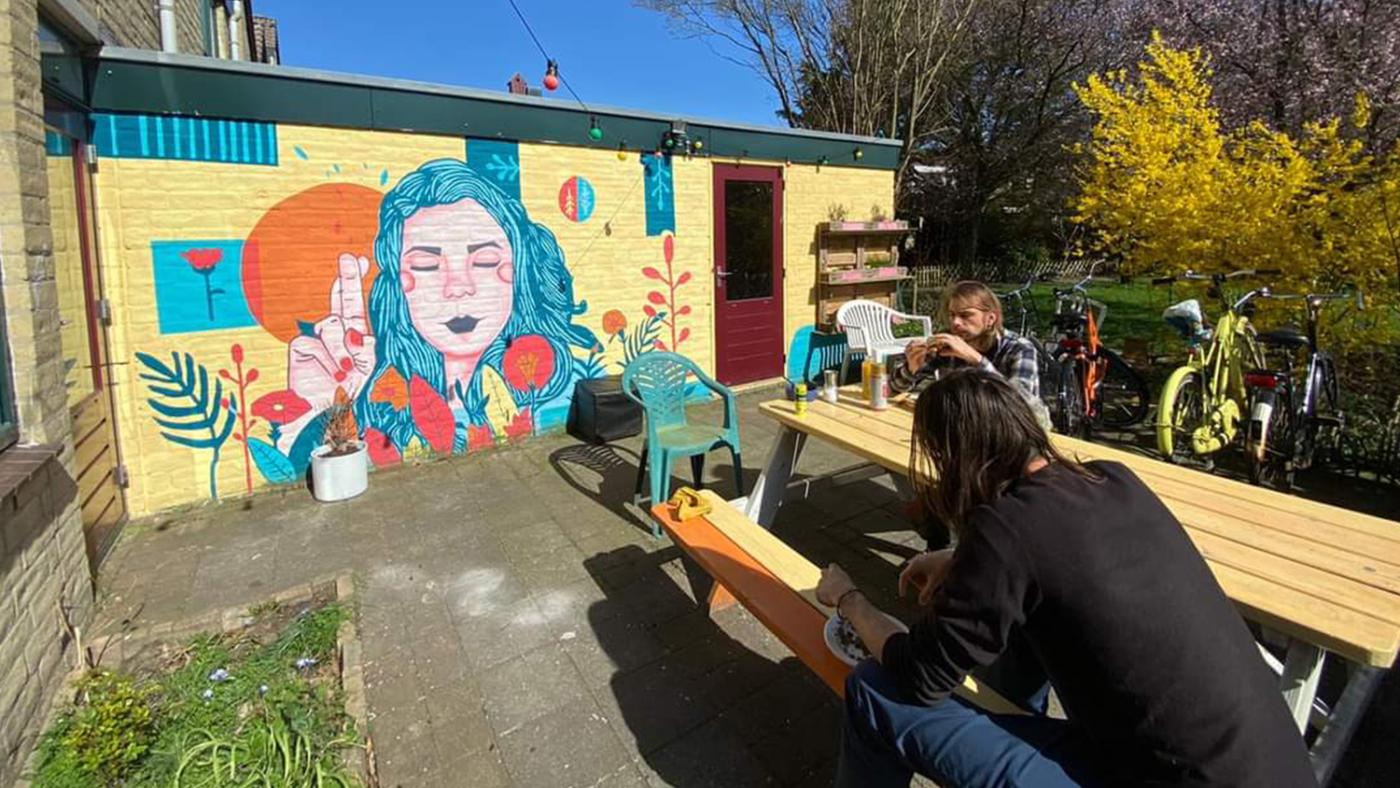Dutch students living together with internationals
‘Internationals very welcome’

In September 2023, almost 6,000 international students arrived in a city with a significant shortage of student housing (coincidentally, Utrecht is 6,000 students rooms short of the demand). Needless to say, finding a room is hard, and even more so for those who do not speak the language and are not familiar with the housing system. Many international students look for a room on social networks like Facebook, where scams abound. They are also confronted with discrimination: "No internationals", many ads say. That doesn't happen at Huize Stamhuis, whose ad starts with the words: “Internationals very welcome.”
Thirteen people live in this house in Lunetten, three of whom come from abroad: Eliza, from Latvia; Rahel, from Germany; and Benedetta, from Italy. Chiel, one of the Dutch roommates, studies Religious Studies and has lived at Stamhuis for five years. “When the house was set up in the 1980s, the founder focused on people who really needed a room, including internationals. So, internationals have always lived here.” Ties studies Global Sustainability Science and has been living in the house for over two years. “We still welcome internationals because we hold certain values, like being open to anyone we feel a connection with, regardless of where they come from.”

Not just English
Chiel thinks it is bad when people explicitly state in an advertisement that internationals are not welcome. “I can imagine that if you are really bad at English, you do not want to live with internationals. But if your English is okay, I think it is quite discriminatory to exclude people in advance like that. Why not invite the person and see if it clicks?” Ties doesn't understand the aversion to internationals either. “Personally, I really like talking to foreigners.”
Both students understand that it can be daunting for some to speak English at home. Ties: “It is hard to suddenly switch from a completely Dutch-speaking house to an English-speaking one when the first foreigner arrives. But I still believe you can get over it. You also learn to speak in another language.”
The fear of allowing internationals into the home might also have to do with the idea that they will leave more quickly. That's not Chiel and Ties' experience, however. “A Dutch roommate can leave quickly too. Some internationals have stayed with us for a few years.” It should also be noted that English is not the only language spoken in their house. “I think we speak Dutch 90 percent of the time," says Ries. "That's because one of the international roommates understands Dutch pretty well. The other two are fairly new, so we speak English with them. I speak both languages at home every day.”

Benedetta is the international student who understands Dutch. She has been living in the Netherlands for almost five years. She moved to Huize Stamhuis as soon as she arrived from Italy, where she obtained a Bachelor's degree in Computer Sciences. She then came to Utrecht for a Master's in Artificial Intelligence at UU. She picked up the language gradually.
"When I came to live here, I didn't mind that they didn't speak English all the time, but then the lockdown came and everyone had to stay home. I'd never felt excluded before because I also had a rich social life outside. However, during the lockdown, my social life all but disappeared. It can be quite frustrating when you've had a bad day and everyone around you is laughing, and you have no idea what they're talking about." Now that a few years have passed and Benedetta has been surrounded by Dutch people every day, the Dutch language is hardly a problem for her anymore. "It's actually pretty rare for me not to understand what they are talking about. Now I can just laugh along. That is definitely a big advantage of living in a house with many Dutch roommates."
Pink soup and Sinterklaas
According to Ties, the presence of four nationalities in the house creates a different social circle. “The friends of our international roommates come from many different countries. I appreciate that dynamic in terms of worldviews, so I consider the international roommates an asset.” Chiel adds that international students are also interested in interacting with the Dutch. “They consciously chose to come to the Netherlands, so they want to get to know the people. When I look back at all the internationals who have lived here, they were all super interested and open-minded. In addition, we also get to learn a lot about other cultures.” Ties: “Yes, good pasta and the pink Latvian soup Eliza makes.” Chiel: “Eliza suddenly went to the midsummer festival in a white dress and wearing flowers in her hair. That was so nice to see."
The two Dutch students also enjoy showing the international roommates a bit of their own culture. They celebrate birthdays and Sinterklaas together, for example. “Sinterklaas is great, but some things were a bit strange to me. When I first moved here, I didn't understand why the Dutch would have dinner at six 'o'clock sharp. I didn't want to do that because, in Italy, we eat at around eight in the evening. But now I like it. For example, if I have cooking duties tomorrow, the food will be on the table around six.”
Although some internationals may have a hard time dealing with the directness of the Dutch, Benedetta doesn't have that problem. “Italians are not likely to say what they think to your face. I find the honesty of the Dutch very refreshing because I know exactly what to expect. I've gotten used to it now and I'm grateful that I live here. I wouldn't have missed it for anything."